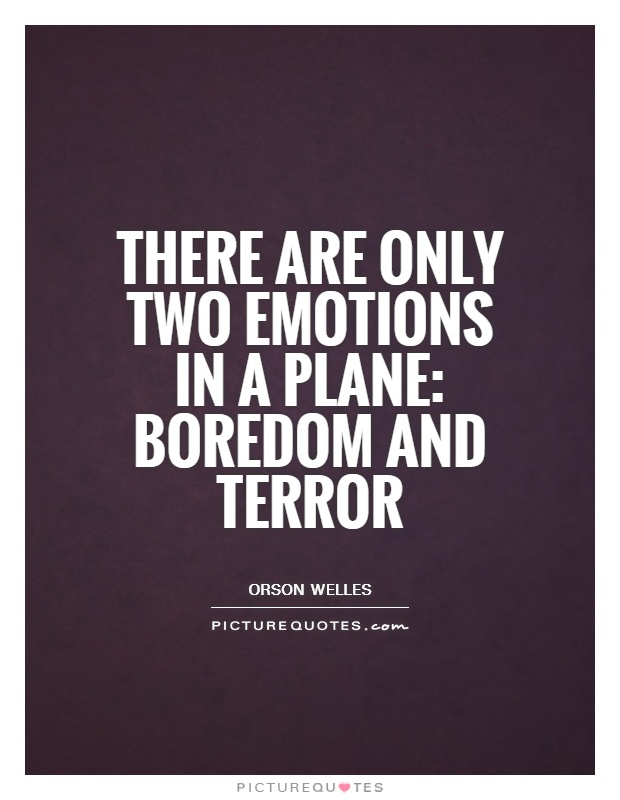There are only two emotions in a plane: boredom and terror

There are only two emotions in a plane: boredom and terror
Orson Welles, the legendary filmmaker and actor, was known for his larger-than-life personality and his ability to captivate audiences with his innovative storytelling techniques. He was a master of creating tension and suspense on screen, often using unconventional methods to evoke strong emotions in his viewers. One of his most famous quotes, "There are only two emotions in a plane: boredom and terror," perfectly encapsulates his unique approach to filmmaking and his understanding of human psychology.Welles' statement can be interpreted in a variety of ways, but one of the most obvious interpretations is that he believed that the experience of flying in an airplane is inherently dichotomous. On one hand, there is the monotony and tedium of sitting in a cramped seat for hours on end, with nothing to do but watch the clouds pass by. This feeling of boredom can be overwhelming, especially for those who are not accustomed to long flights or who have a fear of flying.
On the other hand, there is the ever-present threat of danger that comes with being thousands of feet in the air, hurtling through the sky at hundreds of miles per hour. The possibility of a mechanical failure, a terrorist attack, or a natural disaster can instill a sense of terror in even the most seasoned travelers. This feeling of fear can be paralyzing, causing some people to avoid flying altogether or to rely on sedatives to get through the experience.












 Friendship Quotes
Friendship Quotes Love Quotes
Love Quotes Life Quotes
Life Quotes Funny Quotes
Funny Quotes Motivational Quotes
Motivational Quotes Inspirational Quotes
Inspirational Quotes